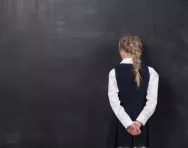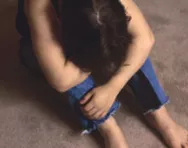Important update from TheSchoolRun
For the past 13 years, TheSchoolRun has been run by a small team of mums working from home, dedicated to providing quality educational resources to primary school parents. Unfortunately, rising supplier costs and falling revenue have made it impossible for us to continue operating, and we’ve had to make the difficult decision to close. The good news: We’ve arranged for another educational provider to take over many of our resources. These will be hosted on a new portal, where the content will be updated and expanded to support your child’s learning.
What this means for subscribers:
- Your subscription is still active, and for now, you can keep using the website as normal — just log in with your usual details to access all our articles and resources*.
- In a few months, all resources will move to the new portal. You’ll continue to have access there until your subscription ends. We’ll send you full details nearer the time.
- As a thank you for your support, we’ll also be sending you 16 primary school eBooks (worth £108.84) to download and keep.
A few changes to be aware of:
- The Learning Journey weekly email has ended, but your child’s plan will still be updated on your dashboard each Monday. Just log in to see the recommended worksheets.
- The 11+ weekly emails have now ended. We sent you all the remaining emails in the series at the end of March — please check your inbox (and spam folder) if you haven’t seen them. You can also follow the full programme here: 11+ Learning Journey.
If you have any questions, please contact us at [email protected]. Thank you for being part of our journey it’s been a privilege to support your family’s learning.
*If you need to reset your password, it will still work as usual. Please check your spam folder if the reset email doesn’t appear in your inbox.
The parents' guide to secondary school: discipline

On moving up to secondary school, one of the biggest worries for many children is getting used to a new, stricter approach to discipline. Gone are the days when missing playtime was the ultimate threat; now, they have to get used to a world of after-school detentions, isolation and even exclusion.
Secondary school behaviour policies
Every school has to publish a behaviour policy, which clearly states the rules of conduct for pupils not just during the school day, but before and after, too. It should also set out how the school will deal with bullying. The behaviour policy should be available to view on the school’s website, or you can ask for a paper copy.
It’s up to the headteacher to draw up the school rules, although this is usually done in consultation with other staff and governors. The head also decides what will happen if the rules are broken. The rules must:
- Promote good behaviour, discipline and respect.
- Prevent bullying.
- Ensure that pupils complete the work they are set.


Download Year 6 to 7 transition packs
- English & Maths transition packs
- Practise journalistic writing, figurative language, persuasive text and more
- Revise key maths methods and concepts
Teachers are often responsible for disciplining students, but all paid members of staff who have responsibility for pupils – including teaching assistants and lunchtime supervisors – are allowed to punish bad behaviour in accordance with the school’s behaviour policy. Teachers also have the power to discipline children outside of school, for example on the way to or from school, or on trips.
What sort of discipline is allowed?
Schools will usually have a scale of discipline, with lesser sanctions for minor incidents through to major punishments for the most serious, such as physical violence, drug offences or persistent bullying.
Typical punishments in secondary schools are:
- A verbal ‘telling off’
- Extra work, or repeating work that wasn’t done satisfactorily
- Written tasks, such as lines, an essay or a letter of apology
- Loss of privileges – for example, being excluded from a treat such as a school trip
- Confiscation of property such as mobile phones
- Breaktime or lunchtime detention
- After-school detention
- School-based community service, such as litter-picking or cleaning up graffiti
- Being placed ‘on report’ for ongoing behaviour monitoring
- Working in isolation
- Temporary or permanent exclusion
Detention
Detention is a commonly used punishment in secondary schools. Teachers can issue a detention to any pupil under the age of 18, and parents don’t have to consent.
Out-of-school detentions can be given on any school day, at weekends (except the weekend immediately before or after a school holiday) and on INSET days. Teachers don’t have to notify parents if they're keeping a child in detention, but they usually will for long detentions or those at weekends. They might not if they’re keeping a child after school for a short period, after which they can still get home safely.
It’s up to you to make sure your child can get home after a detention, even if it’s inconvenient for you (e.g. if they miss the school bus).
Teachers can impose breaktime or lunchtime detentions as they see fit, but must allow students time to eat and use the toilet.
Confiscation of items
Teachers are allowed to confiscate, keep and dispose of pupils’ items of personal property, as long as it’s reasonable in the circumstances. For example, a teacher might confiscate a mobile phone if a student uses it in class, and give it back at the end of the day; or they might confiscate and get rid of a packet of chewing gum if it’s banned on school premises. Teachers aren’t liable for loss or damage to any confiscated property, as long as they’ve acted within the law.
Members of staff also have the power to search pupils without consent for certain items. These include:
- Knives and weapons
- Alcohol
- Illegal drugs
- Stolen property
- Tobacco and cigarette papers
- Fireworks
- Pornographic images
- Any item that has been, or is likely to be, used to commit an offence such as damage to property
- Any item banned under the school rules
Isolation
Pupils are often made to work in isolation if they’re disrupting the class. There are different ways of isolating a pupil. They may be asked to work outside in the corridor, or outside the office of a senior member of staff, or they may be sent to an isolation room, where pupils work in silence under the supervision of a dedicated member of staff.
Schools can decide how long it’s appropriate to keep a pupil in isolation, and what they do during their period of seclusion. They should be in isolation for no longer than is necessary, and they should use their time constructively, for example by doing the work that the rest of their class is doing.
Exclusions
Temporary or permanent exclusions are usually a last resort for serious or ongoing infringement of school rules. They can start with immediate effect, but you shouldn’t be forced to pick your child up straight away. You’ll be informed about the exclusion as soon as possible, usually by phone. The school will then put the details of the exclusion in writing, with information about how to challenge the decision.
For the first five school days of a temporary (or fixed period) exclusion, it’s your responsibility to make sure your child isn’t seen in a public place, and you can be fined or prosecuted if they are. The school should set your child work for these five days. If the exclusion is to be longer than five days, they have to provide suitable alternative full-time education from the sixth day, such as in a pupil referral unit for students with behavioural issues.
A permanent exclusion means your child is expelled. Your local council must arrange alternative education from the sixth day of their expulsion.
Use of force in schools
Although corporal punishment has been illegal in schools for many years, staff can use reasonable force in certain situations, including:
- To prevent a pupil committing an offence
- To prevent a pupil harming themselves or others
- To prevent them damaging property
- To maintain good order in the classroom
- To search them for forbidden items
Attendance and truancy
Once your child is making their own way to and from school, it can be harder to keep tabs on their attendance. But it’s your responsibility as a parent to make sure they get a suitable full-time education until the age of 16. If you don’t, you can be prosecuted and fined.
If your child fails to turn up for school, you should be contacted by the school, even if they’re only absent for a day. If their attendance becomes an ongoing concern, you’ll be contacted by the council’s education welfare officer, whose job it is to help parents get their children back into school.
You can only allow your child to miss school if they’re too ill to go in, or if you have advance permission for them to be absent: for example, for an unavoidable medical appointment, a musical instrument exam, or a family funeral.
Holidays in term-time are rarely approved. If you want to take your child on holiday, you’ll have to make an application to the headteacher, and leave will only be granted in exceptional circumstances. It’s up to the head to say how many days’ absence will be allowed. You can be fined for taking your child on holiday without the school’s permission.
Rewards for good behaviour
As well as having policies in place for dealing with bad behaviour, schools should have clear systems for rewarding good behaviour. These will vary from school to school, although many schools now use computerised systems where students accumulate points, which can then be ‘cashed in’ for a reward such as a voucher or participation in a special trip or event.
Typical rewards for good behaviour include:
- Points-based systems, such as merit points or house points
- Extra privileges such as special school trips for pupils who consistently behave or perform well
- Commendation letters or emails home to parents
- Prizes, such as subject trophies
- Incentives such as vouchers or gifts
The types of behaviour that secondary school students can earn rewards for include good work in class or at home, participation in school or community projects or extra-curricular clubs, consistent good behaviour, improving grades, good attendance and even healthy eating.








